Everyone is different, but some form of talk therapy and antidepressants (if you need them) are likely the best bets for managing depression. But certain vitamins and supplements may also help. Here's what the experts recommend.
10 Best Supplements for Depression Worth Trying
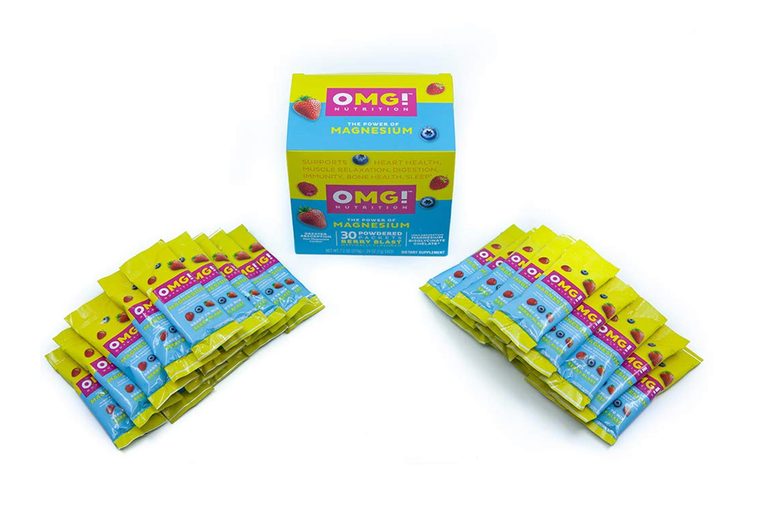
Magnesium
The miracle mineral du jour, magnesium boasts many benefits—putting it at the top of the list of supplements for depression relief, says Samantha Cassetty, RD, a New York City-based nutritionist. “Studies show that 500 mg of magnesium daily can improve depression in as little as two weeks,” she says. Cassetty serves as the Chief Nutrition Officer for OMG! Nutrition, which makes a magnesium supplement. Many people don’t get the magnesium they need from their diet, and our soil—once a rich source of this essential mineral—is now depleted of magnesium, she says. Some supplements have a laxative-like effect, which is why she recommends magnesium glycinate. “Start slowly with 200 mg per day and increase gradually to ease any tummy troubles.”
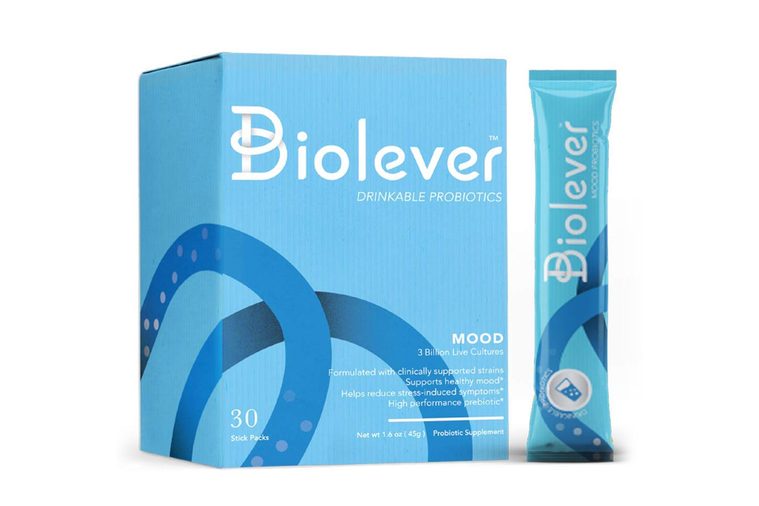
Probiotics
The mind and gut are intimately connected, Cassetty says. Probiotics help balance out good and bad bacteria in the gut, and this can have spillover effects on mood and depression. Strains such as Bifidobacterium longum and Lactobacillus helveticus R0052 may be particularly helpful as supplements for depression, she says. “However, evidence also suggests that a multi-strain probiotic formula may lead to mood improvements. I generally suggest choosing a multi-strain formula that has at least one specific strain that has been clinically demonstrated to improve depression.” Find out 10 foods that help fight depression naturally.

Fish oil
Fish oil is loaded with inflammation-cooling omega-3 fatty acids. Some people with depression may have low blood levels of eicosapentaenoic acid (EPA) and docosahexaenoic acid (DHA), both of which can be found in fish oil. “If you don’t eat enough oily fish, supplements may make a difference in your mood,” says Tod Cooperman, MD, president of ConsumerLab.com, a White Plains, New York-based company that independently tests supplements and vitamins. “Supplementing with fish oil with a high percentage of the omega-3 fatty acid EPA has been shown to improve symptoms in moderate and major depression and may help to improve the effectiveness of various antidepressant medications.”
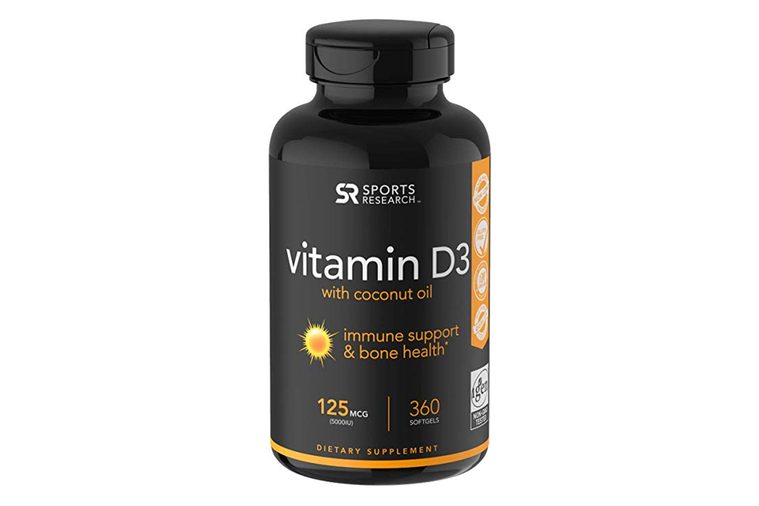
Vitamin D
Research has linked low levels of vitamin D to a laundry list of diseases and conditions—including depression, explains Cooperman. Like most cells in your body, your brain cells have receptors for vitamin D, which is why a deficiency may make this a candidate on the list of supplements for depression. A blood test can tell you where you stand and you can supplement accordingly, he says. Here are some more vitamins for depression that can help boost your mood.
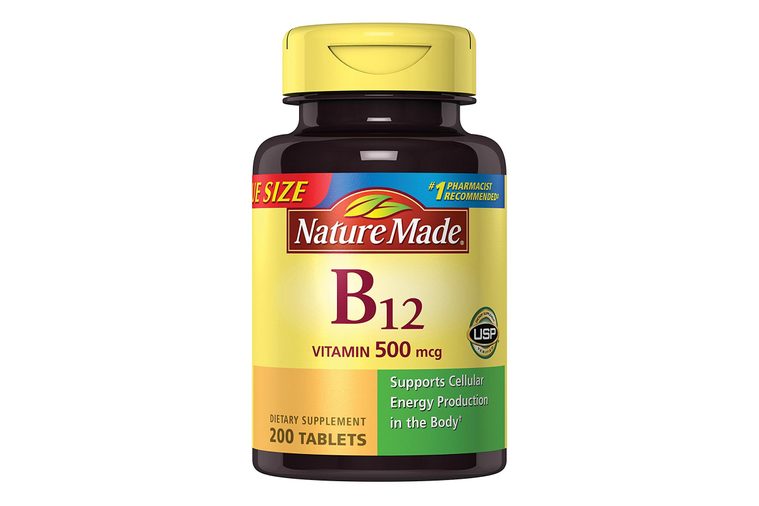
Vitamin B12
Reader’s Digest has reported how vitamin B12 benefits your entire body; if you’re low, mood changes and depression may be among the symptoms. “Taking extra B12 won’t help with depression, but if you start getting enough, it may improve some symptoms of depression,” Cooperman says. Vitamin B12 is mainly found in meats, fish, poultry, eggs, and dairy, and you can get it from supplements.
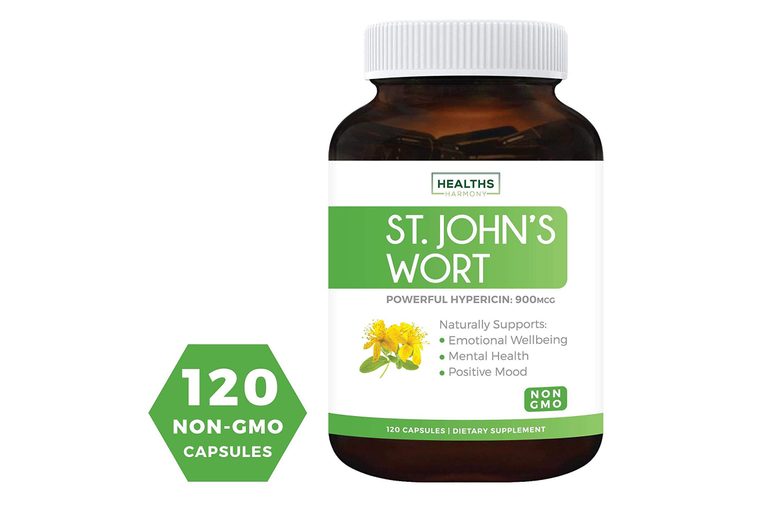
St John’s wort
St. John’s wort is one of the most widely studied supplements for depression. “It’s been shown to be as effective for mild to moderate depression as standard antidepressants—with fewer side effects,” Cooperman says. But, he cautions, St John’s wort interacts with many medications such as blood thinners, cholesterol medicines, and many other prescription drugs. Speak to your physician before taking St. John’s wort. Here are the silent signs you might need depression medication.
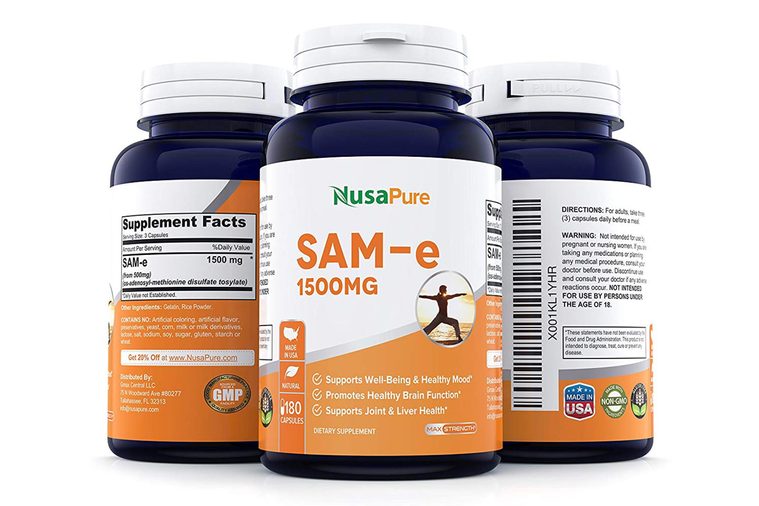
SAMe
Short for S-adenosyl methionine, SAMe may play a role in treating depression—particularly for people who don’t respond to prescription antidepressants. In one study, 36 percent of individuals taking a combination of SAMe and an antidepressant showed improvement after six weeks, compared to just 18 percent of those taking the antidepressant and placebo or dummy pill. “This may be a good option for people who don’t respond adequately to prescription antidepressants,” Cooperman says. Make sure to run anything that you are considering by your doctor first, he says.
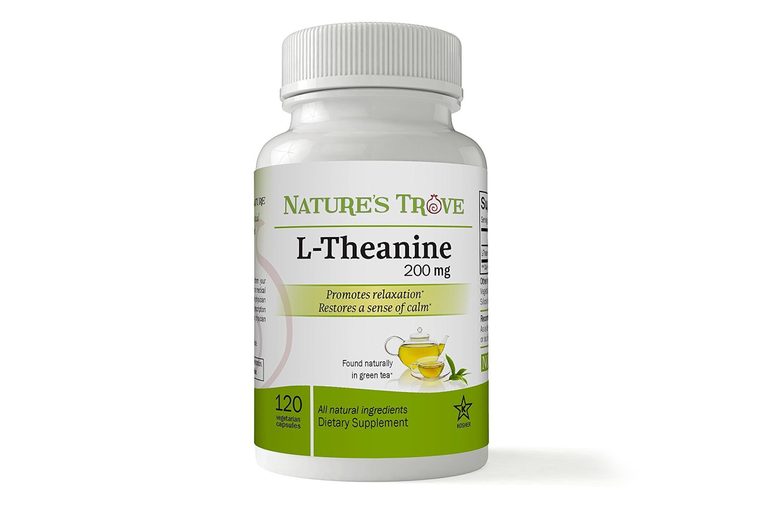
L-theanine
An amino acid found in black and green tea (think matcha), L-theanine may boost levels of the brain chemical serotonin which plays a role in mood. In fact, many available antidepressants target serotonin. “There is some evidence that it may reduce stress and anxiety,” Cooperman says. Here are 16 ways to help overcome depression naturally.
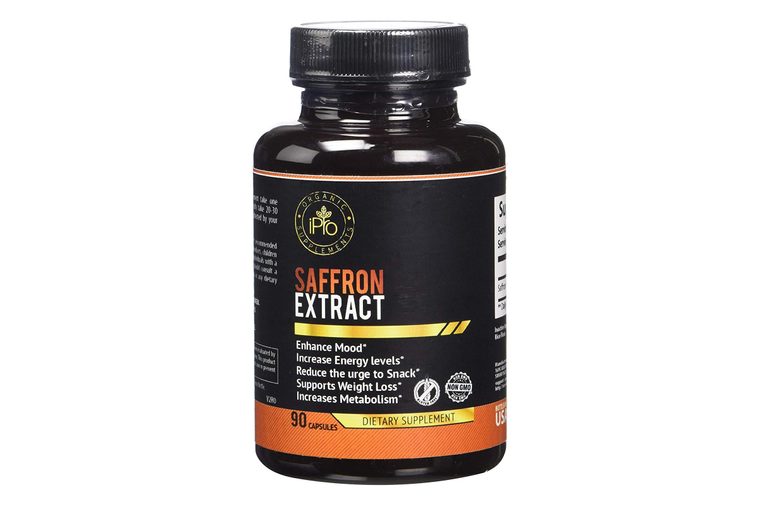
Saffron
You might be familiar with saffron as one of the most expensive spices in the world, but now it appears that a saffron extract may be an effective supplement for depression. In a study of 80 adolescent boys and girls with mild-to-moderate anxiety and/or depression, saffron extract decreased self-reported symptoms of depression and anxiety compared to placebo, and the parents of the kids who took the extract reported some improvements too. The dose of the extract (affron®) was 14 mg taken twice daily. The study was funded by the manufacturer of the extract. While it may be difficult to track down this variety, you can find other saffron supplements online.
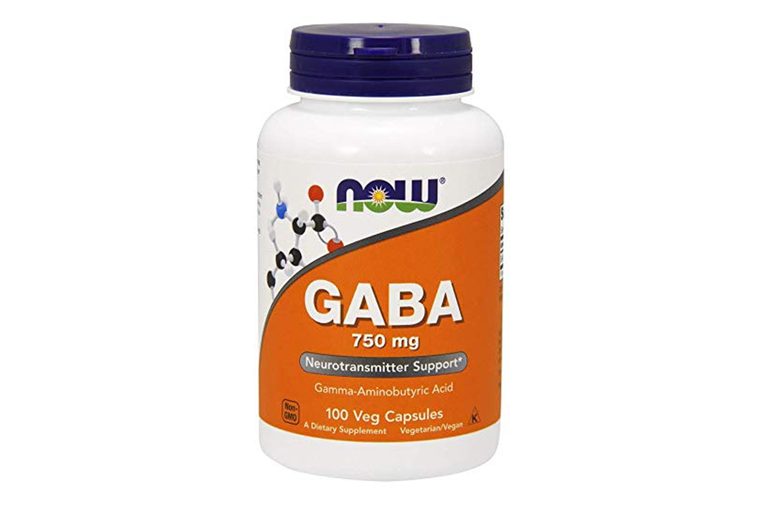
GABA
Officially, it’s gamma-aminobutyric acid, but GABA’s a lot easier to say. When your brain is low in this substance, your risk for depression climbs. The only trouble with taking a GABA supplement, points out Michael Breus, PhD, a.k.a. The Sleep Doctor, is that no one’s sure if the contents can cross the blood-brain barrier. However, some research suggests the pills can lower stress and anxiety—two risk factors for depression. Always talk to your doctor about any supplement that you are taking. Now, find out the vitamins and supplements doctors take every day.
Every product is independently selected by our editors. If you buy something through our links, we may earn an affiliate commission.



















